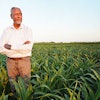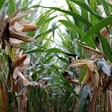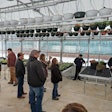
To meet growing customer demand for specialty fats, Cargill has started construction on a $35 million expansion of its production facility in Port Klang, Malaysia.
This is the first step in a multi-year, global investment expected to exceed $100 million aimed to significantly expand the company’s global portfolio in specialty fats.
“Specialty fats are incredibly popular due to their versatility and functionality,” said Jennifer Shomenta, president and group leader for Cargill’s global edible oils solutions business. “With this investment, we’ll be better positioned to support our customers’ innovation journey, equipped with the building blocks necessary to co-create tailored solutions that align with their unique needs.”
At the Malaysian facility, Cargill will install dry palm fractionation capacity, enabling the production of a range of specialty fats for use in chocolates, coatings, fillings and compounds, spreads, bakery fats, and other applications. Cargill will also further upgrade its Malaysia Edible Oils R&D Center, enhancing lab equipment and pilot plants to align with the Port Klang facility’s new specialty fat capabilities.
The newly announced project comes on the heels of a nearly complete $20 million upgrade to the facility begun just one year prior, which enhanced the site’s production capacity and completed a first round of updates to its R&D capabilities.
Taken together, these two Port Klang projects are the first of what Cargill expects to be multiple investments, spread across its specialty fat production plants around the globe. The more than US$100-million initiative will thrust Cargill to the forefront of specialty fats production, with state-of-the-art facilities and a reliable, end-to-end sustainable supply chain.
“All too often, brands must navigate complicated supply chains to procure their specialty fats, purchasing oil from one supplier, then shipping it to others for further processing,” Shomenta said. “Through our investments at Port Klang and across our global processing locations, we’ll eliminate those extra steps, giving customers the convenience of a single, trusted partner, all backed by Cargill’s technical expertise and global resources.”
The broad range of ingredients produced at Cargill’s Port Klang plant will play starring roles in the sensory profiles of many products, contributing to their improved taste, texture and mouthfeel. Derived from seed and tropical oils, specialty fats offer a wide range of attributes from heat resistance, a key benefit for confections sold in warmer climates, to quick meltdown for enhanced flavor release amongst other functional attributes.
The ingredients are also key to improving flavor profile, product stability and other sensory needs of customers in the rapidly growing meat and dairy alternatives market. Further, Cargill’s responsibly sourced palm oil supply chain will make it possible for the company to offer specialty fats made from segregated palm oil certified by the Roundtable for Sustainable Palm Oil (RSPO).
The Port Klang expansion is expected to be complete in late 2023, at which time Cargill will begin supplying finished specialty fats to customers throughout the Asia Pacific region, and semi-finished products to Cargill facilities in Europe, Middle East, Russia, South America and North America. This will enable the company to offer its expanded specialty fat range to customers in those regions as well, putting Cargill in a strong position to serve global and regional customers alike.
The investment also aligns with Cargill’s plans to expand its operational footprint across the Asia Pacific region. In 2021 alone, the company announced its intent to build a $200 million palm oil refinery in Indonesia and unveiled a new partnership with Nestle to support Indonesian cocoa farmers. Other investments in the region include support for sustainable coconut production through programs that engage smallholder farmers with training on good agricultural practices and develop community conservation commitments.





















